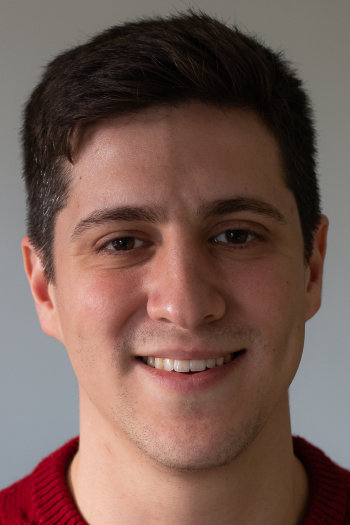European grantPublished on 19.02.2020
AMI researcher awarded prestigious fellowship
Adolphe Merkle Institute post-doctoral researcher Philip Scholten has been awarded a prestigious Marie Skłodowska-Curie Fellowship to develop degradable commodity plastics. His project, called DECOMPOSE, will focus on novel materials based upon highly complex polymers containing metallic ions.
The need for more sustainable and environmentally-friendly products and materials is driven by an increasing environmental and health awareness, opening new markets with significant economic potential. Plastic and microplastic pollution have received significant media attention over the last few years. The difficulty of recycling commodity plastics also means that incineration and landfills are still the main options when dealing with this waste. Novel materials are therefore needed to help tackle these issues, and facilitate the recycling and degradation of (commodity) polymers.
Building on the expertise of the AMI Polymer Chemistry and Materials group (Prof. Weder), Scholten will investigate over the next two years new materials integrating so-called metallosupramolecular polymers, potentially providing a solution to plastic pollution issues. He will also develop a platform to prepare bio-based, benign, and (bio)degradable precursors for these polymers.
 A Marie Skłodowska-Curie Fellowship has also been awarded to AMI alum Omar Rifaie Graham, currently a post-doctoral researcher at Imperial College in London. Rifaie Graham, who was recently awarded the University of Fribourg’s prize for best experimental thesis, aims to find parameters that allow polymersomes (i.e. nanoscale hollow polymer containers in water) to self-synthesize autocatalytically, and reproduce in a similar way to cells that divide. Ideally, this would permit the supply of existing polymersomes with essential chemical “nutrients” to allow growth and self-replication, and could be also controlled by external stimuli such as light.
A Marie Skłodowska-Curie Fellowship has also been awarded to AMI alum Omar Rifaie Graham, currently a post-doctoral researcher at Imperial College in London. Rifaie Graham, who was recently awarded the University of Fribourg’s prize for best experimental thesis, aims to find parameters that allow polymersomes (i.e. nanoscale hollow polymer containers in water) to self-synthesize autocatalytically, and reproduce in a similar way to cells that divide. Ideally, this would permit the supply of existing polymersomes with essential chemical “nutrients” to allow growth and self-replication, and could be also controlled by external stimuli such as light.
